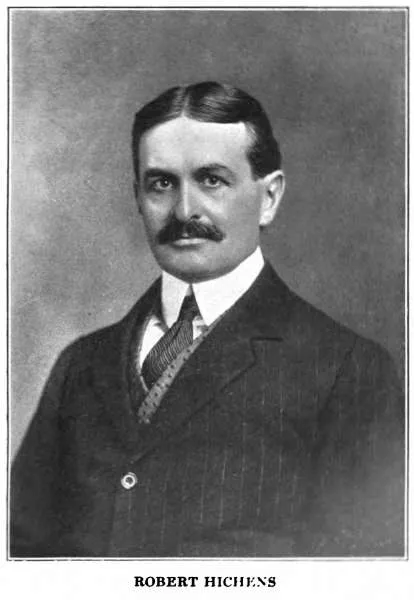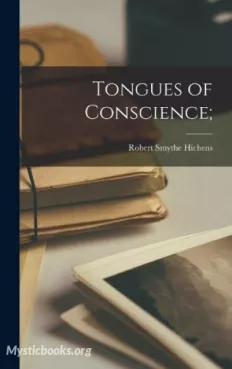
Timeline
Title
Country/Nationality
Robert Smythe Hichens
Robert Hichens was an English journalist, novelist, music lyricist, short story writer, music critic and collaborated on successful plays. He is best remembered as a satirist of the "Naughty Nineties".
Hichens was born in Speldhurst in Kent, the eldest son of the Rev. Frederick Harrison Hichens, and his wife Abigail Elizabeth Smythe. He was educated at Clifton College, the Royal College of Music and early on had a desire to be a musician. Later in life he would be a music critic on the World, taking the place of George Bernard Shaw. He studied at the London School of Journalism. Hichens was a great traveller. Egypt was one of his favourite destinations – he first went there in the early 1890s for his health. For most of his later life he lived outside England, in Switzerland and the Riviera. Hichens was a homosexual; he never married.
Hichens first novel, The Coastguard's Secret (1886), was written when he was only seventeen. He first became well known among the reading public with The Green Carnation (1894), a satire of Hichens's friends Oscar Wilde and Lord Alfred Douglas; since the work made clear Wilde was homosexual it was withdrawn from publication in 1895, but not before helping set the stage for Wilde's public disgrace and downfall.
Hichens was also friends with several other writers, including E. F. Benson and Reggie Turner, as well as the composer Maude Valérie White.
Hichens's first big success was An Imaginative Man (1895); set in the city of Cairo, Egypt, a place which fascinated Hichens, it is a study of insanity, in which the hero has a number of sexual adventures and then smashes his head against the Great Sphinx. Other early fiction includes The Folly of Eustace (1896), a collection of stories including some supernatural; Flames (1897), a story resembling Dr Jekyll and Mr Hyde; The Londoners (1898), a satire about decadent London; The Slave (1899), a fantasy about an amazing emerald; Tongues of Conscience (1900), a collection of five horror stories including "How Love Came to Professor Guildea" (this story is about a supernatural visitation and is thought by some to be Hichens's best fiction – it is frequently anthologised). "How Love Came to Professor Guildea" was not initially well-received, with Frederic Taber Cooper calling the story "a hideous bit of morbidity" and Edmund Wilson dismissing the story as "trash". Later reviews of the story were more positive; J. A. Cuddon called it "outstanding" and compared it with "The Horla" by Guy de Maupassant and "The Beckoning Fair One" by Oliver Onions. Brian Stableford described the story as an "authentic masterpiece of horror fiction", and Jason Colavito called it "possibly one of the greatest stories of its age".
Hichens's Felix (1902), is an early fictional treatment of hypodermic morphine addiction, while The Garden of Allah (1904) sold well internationally, and was made into a film three times.
Hichens published his memoirs in 1947, Yesterday.
Books by Robert Smythe Hichens

Tongues of Conscience
In the heart of Edwardian England, a young woman's conscience is put to the ultimate test in Robert Smythe Hichens' gripping novel, Tongues of Conscience. When Lady Kitty Anstruther, a beautiful and spirited young woman, inherits a grand estate in C...

Spell of Egypt
The author, a British journalist and novelist, is interested in the feel of the places he visits. He describes at length a visit he has made to Egypt, with emphasis on the emotional response the places generate. (summary by Sibella)

Return of the Soul
Can the soul of the dead come back to haunt the one who was responsible for its death? What would happen if the responsible one did not believe it could be so, and yet was in love with the returned soul? The Return of the Soul is a horror story of a...

Green Carnation
The Green Carnation, first published anonymously in 1894, was a scandalous novel by Robert Hichens whose lead characters are closely based on Oscar Wilde and Lord Alfred Douglas - also known as 'Bosie', whom the author personally knew. It was an inst...